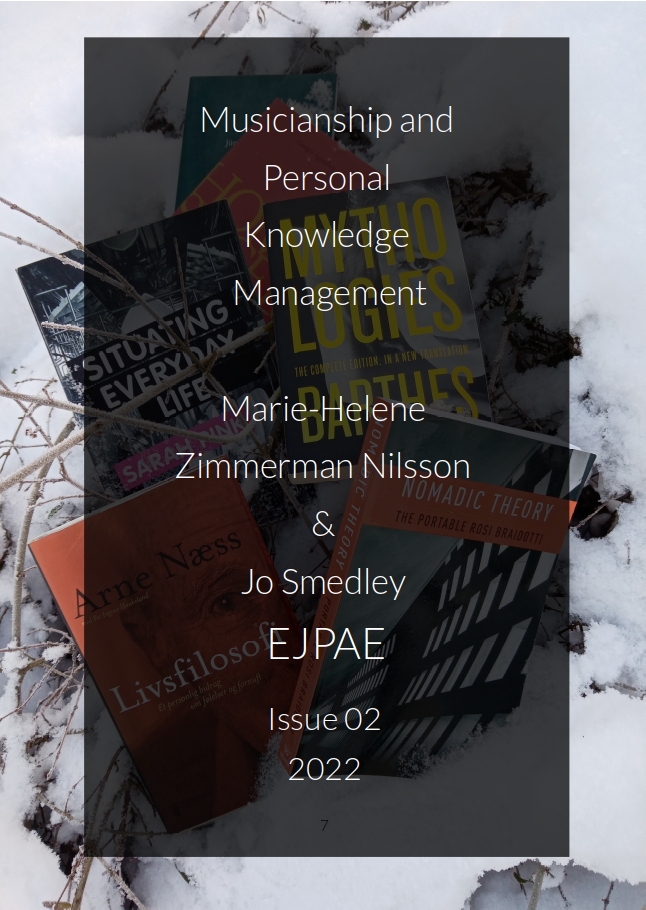Musicianship and Personal Knowledge Management
DOI:
https://doi.org/10.5281/zenodo.7451825Keywords:
personal knowledge management, musicality, prior learning, collaboration, managing informationAbstract
In today’s information focused world, most days involve contact with some form of screen and keyboard for work and leisure purposes. Learners must be dexterous and agile to effectively respond to shifting labour market requirements reflecting fast-changing technological needs and expectations. Information is available in a myriad of forms and successful engagement requires effective and efficient skills and understanding. With this background, this paper asserts that a musical skill set broadens the way that learners subsequently engage with and manage their information acquisition and use. This provides a broader base for ongoing knowledge management. Using philosophical and reflective approaches, it draws on life experiences from arts education by way of a duoethnographic approach. Two narratives provide insights of individual experiences, subsequent acquisition and engagement with information and consequent enhanced knowledge. These are analysed using a personal knowledge management model, providing a visualisation approach to the collaboration through knowledge sharing. The dialogic results demonstrate how the background of musical competence enriched subsequent learning capability in structuring and operationalising knowledge acquisition and management.

Downloads
Published
Issue
Section
License
Copyright (c) 2022 Marie-Helene Zimmerman Nilsson, Jo Smedley

This work is licensed under a Creative Commons Attribution 4.0 International License.
EJPAE provides immediate open access to all its published content. Users do not need to register or pay to read content.
https://creativecommons.org/licenses/by/4.0/
Authors of content published in European Journal of Philosophy in Arts Education (EJPAE) retain the copyright to their works. Content is free to be used by anyone as long as you "[...] give appropriate credit, provide a link to the license, and indicate if changes were made. You may do so in any reasonable manner, but not in any way that suggests the licensor endorses you or your use." and "No additional restrictions — You may not apply legal terms or technological measures that legally restrict others from doing anything the license permits." (from the Creative Commons licence agreement)
EJPAE does not charge any author or publication fees.
Authors are encouraged to deposit the final published version of their article for self-archiving (author's personal website) and/or archiving in an institutional repository immediately upon publication.




